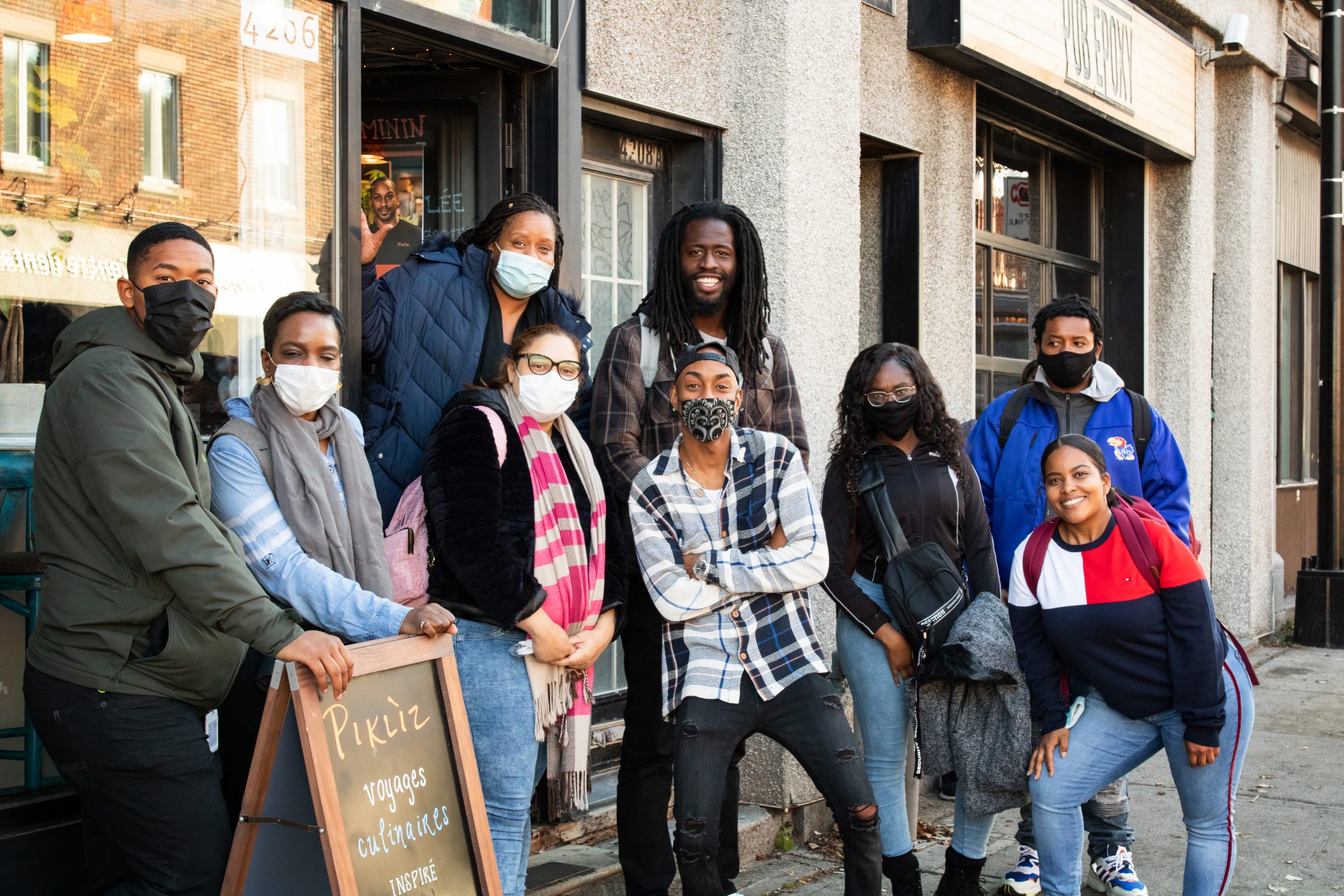How the story of a Black enslaved woman resonates today
An enormous portion of Montreal had burned down; among the devastation numerous households, merchant shops, a hospital, and a convent were lost. After the destruction on April 10, 1734, the city turned its eyes to Marie-Joseph Angélique, a young Black enslaved woman, as the culprit.
Maintaining her innocence throughout the trial, Angélique denied the hearsay allegations of majority white citizens. After almost six weeks of a trial that collected no definitive evidence or testimony, Angélique was sentenced to death. 29-year-old Angélique was tortured, hanged, and burned on June 21, roughly two months after the fire, for a crime many historians believe she did not commit.
Today, tucked away in Montreal’s Old Port, a plaque honouring Angélique tells a different story: the fight for the abolition of slavery, and the remembrance that slavery did occur here in our city. Angélique has become a symbol of resistance, not only because of her treatment in the colonial justice system, but of the testimonies revealing her fight for freedom, 100 years before the abolition of slavery in Canada.
However, the hard-to-spot plaque emphasizes the lack of any outstanding acknowledgment for Angélique, and magnifies the criticism of Montreal’s suppression of minority people’s history.
Montreal Black history tour guide Rito Joseph runs “Tourist in My City,” a tour in the Old Port and Little Burgundy which sheds light on the city’s centuries-long diverse history. A self-taught historian, Joseph believes that learning about Black history is crucial to understanding Canadian history and systemic racism.
For Joseph, the story of Angélique represents the reality of racism in the city, and how the impact of the trial resonates today.
“Marie-Joseph Angélique shows us that Montreal, Quebec, Canada, was involved in slavery and they benefited from the Transatlantic slave trade, it also shows us that systemic racism goes beyond what we can imagine.”
At the time of Angélique’s trial, Montreal was part of the French colony “New France,” where Black individuals were not legally considered people. For the trial, Angélique had to prove her innocence against a slew of allegations, and was not allowed a lawyer.
“They had about 20-something people testify against her, none of them had seen her set the fire. It shows a lot, and it shows us that the mentalities haven’t changed much,” said Joseph.
The lack of monuments and school curriculum dedicated to Black history, for Joseph, are in line with Angélique’s treatment and the suppression of Black people in the city.
“It shows that Black history here is not being taken seriously and by not taking Black history seriously it shows the lack of appreciation or respect for the Black community here.”
Montreal saw the rise of the Black Lives Matter movement during the summer, followed by the protests calling for justice after the death of Indigenous woman Joyce Echaquan in September. Protestors and organizers said the city has a problem with racism, and that systemic racism exists in institutions in Montreal, such as the police.
For Joseph, learning about Black history is a step towards fighting systemic racism.
“Theres a level of dehumanization that we have to face on a regular basis that is rooted in slavery [and] racism and because we don’t take time to study the history that affects us on a regular basis, its really hard for us to really acknowledge or deconstruct what we call nowadays systemic racism,” said Joseph.
Montreal theatre and film producer Ayana O’Shun produced both a play and documentary about Angélique, after watching an episode on the History Channel about her and becoming inspired by the character’s story of resilience.
“I found this is a sign not only of strength but a sign of self-awareness, and consciousness of who she is, and what it takes to fight everyday against a system that tells you to sit down and do what we want you to do. I found it absolutely amazing and admirable,” she said.
After being refused her freedom, Angélique attempted to run off with her lover, a white man named Claude Thibault; a relationship which was forbidden at the time. She was often rebellious in her home in an attempt to gain freedom, but unfortunately Angélique’s behaviour was despised, and instead of contributing to her freedom, it was used to pin the arson crime on her.
Her gruesome death speaks to the missing history of Black Montrealers throughout the centuries, and how previous injustices mute their voice throughout the historical landmarks of this city.
O’Shun believes it’s important to include Black history landmarks throughout the city and teach it in schools, because through it, we can learn the real story of Canada.
“When you teach history, you should teach a whole history, not take out some part[s] because it doesn’t look good,”she said.“The real story is much more complex, nuanced, and the story of Angélique is a proof of that.”
Photos of “Tourist in My City” and Rito Joseph by Christine Beaudoin, photo of “Black Hands: Trial of the Arsonist Slave” courtesy of Bel Ange Moon Productions
